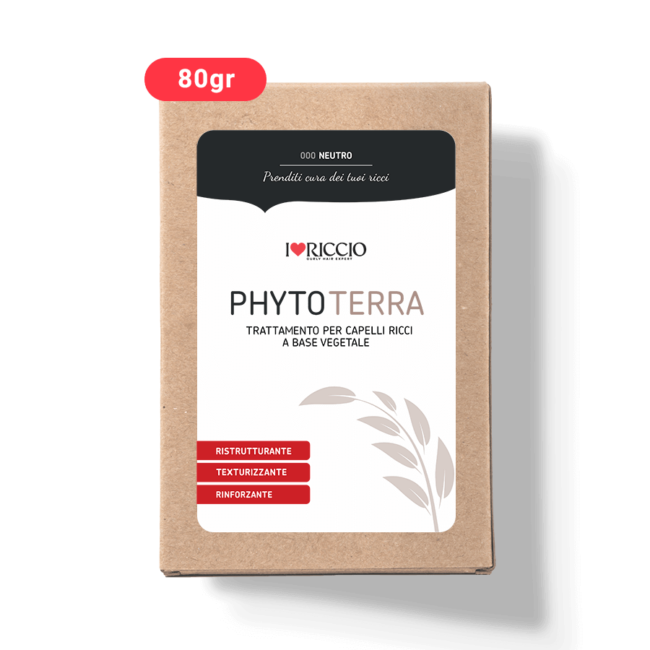Henna is the most popular natural alternative to chemical dye for those wishing to colour, tone or cover grey hair. Derived from the Lawsonia inermis plant, henna offers a natural, plant-based colouring that can benefit not only the hair but also the scalp. For those with curly hair therefore, which is generally more delicate and complex in its structure than straight hair, henna proves to be an ideal choice.
In this article we will examine the advantages and disadvantages of using henna on curly hair, also comparing it with traditional chemical dyes.
As mentioned in the introduction, henna is a natural choice with numerous benefits for those with curly hair. Let’s take a look at its main benefits below.
1. Natural and safe colouring
One of the main reasons why many people choose henna is its ability to colour hair without the use of harsh chemicals. Unlike chemical dyes, which often contain ammonia, peroxide and other harmful substances, this is completely natural and since curly hair tends to be brittle due to its conformation, avoiding harsh chemicals is crucial.
2. Natural strengthener
Henna is also known for its strengthening properties. Once applied, it forms a protective layer around the hair shaft, increasing its strength and robustness. This protection therefore helps prevent hair breakage, keeping it healthy and strong.
3. Shine and definition
Another much appreciated effect is the increased shine of the hair. Henna gives curls a healthy, shiny appearance and can promote greater definition and thus enhance the natural shape of curls.
4. Purifying and sebum-regulating action
Thanks to its purifying and sebum-regulating properties, it is particularly suitable for those with an oily scalp or prone to dandruff. Its anti-fungal and antibacterial qualities in fact help to keep the scalp clean and healthy.
5. Absence of harmful chemicals
As it contains no ammonia, parabens or peroxide, the risk of allergies or irritations, that can be common with chemical dyes is reduced. Nevertheless, it is always recommended to carry out a sensitivity test before application to avoid unwanted reactions to Lawsonia inermis.
6. Why is henna good for the hair?
Besides toning the hair, henna improves its overall health. Its strengthening properties make it stronger and shinier, without altering its natural structure, and its purifying and sebum-regulating properties help maintain a healthy scalp, while also combating dandruff and itching problems.
Despite its many benefits, the use of henna on curly hair is not without its disadvantages, so let’s investigate them below.
1. Poorly flexible colour
One of the main disadvantages of henna is its limited flexibility in terms of colouring. It does not offer a wide range of colour options like chemical dyes, so it is difficult to obtain particular shades, and the result obtained is closely related to the base colour of the hair. In addition, henna does not lighten the hair, so if you start with a dark base, the shade is consequently less noticeable.
However, I Love Riccio’s Phytoterra Henna has a wide range of colours to suit different shades: cinnamon, golden blonde, fire red, apricot, cherry, mocha, hazelnut, plum, copper, sand.
2. Waiting time for ‘removal’
If you want to change colour or return to your natural colour, you have to wait for the henna to drain off gradually with washes. The waiting time for complete removal may also vary from hair to hair depending on various factors, such as porosity.
3. Effect on curls: is it true that henna straightens hair?
One of the most common concerns about henna is the possibility that it may straighten the hair. In this respect, it should be pointed out that Lawsonia inermis does not alter the natural structure of the hair, but it is possible to have the impression that curls are straightened. Why?
Henna creates a protective layer around the hair shaft, which also makes the hair thicker. So, to explain very simply, as there is an additional layer on the hair, it can be made heavier with the visual consequence of resulting in a more relaxed curl. However, it is important to point out that this is a temporary effect, which is particularly noticeable on fine curly hair, but it is not a permanent straightening effect. This in fact tends to disappear with washing.
4. Possible allergic reactions
Although natural, it is important to bear in mind that henna is not without risk of allergies. Some people may develop skin reactions such as itching, redness or irritation of the scalp. To avoid this risk, it is always advisable to test a small area of the skin before proceeding with full application.
For those with curly hair, henna can be an excellent alternative to chemical dyes, bringing numerous benefits and reflecting the colour without damaging the already delicate structure of curls. To find out more about how to make henna in the comfort of your own home, read the article how to make henna with curly hair!

Plant-based coloring that gives shine and moisture to wavy or curly hair.

Plant-based coloring with cinnamon-colored highlights.

Plant-based coloring with copper-colored highlights.



